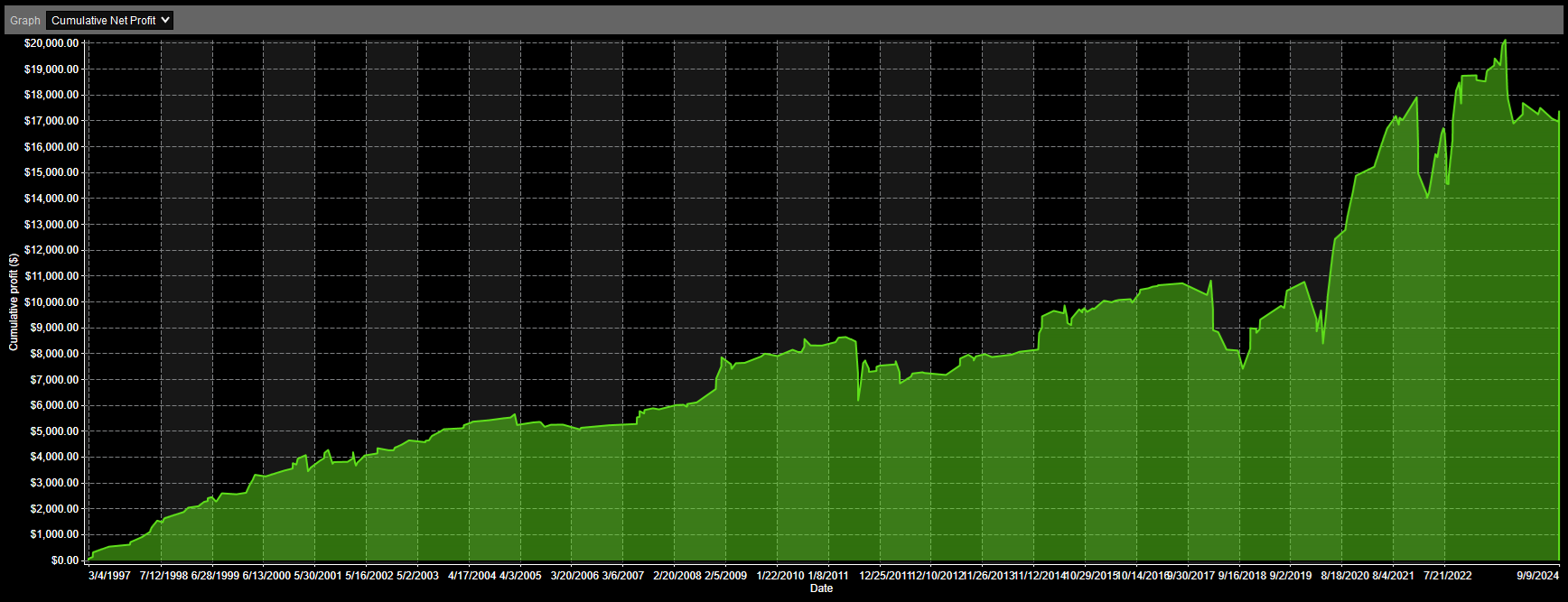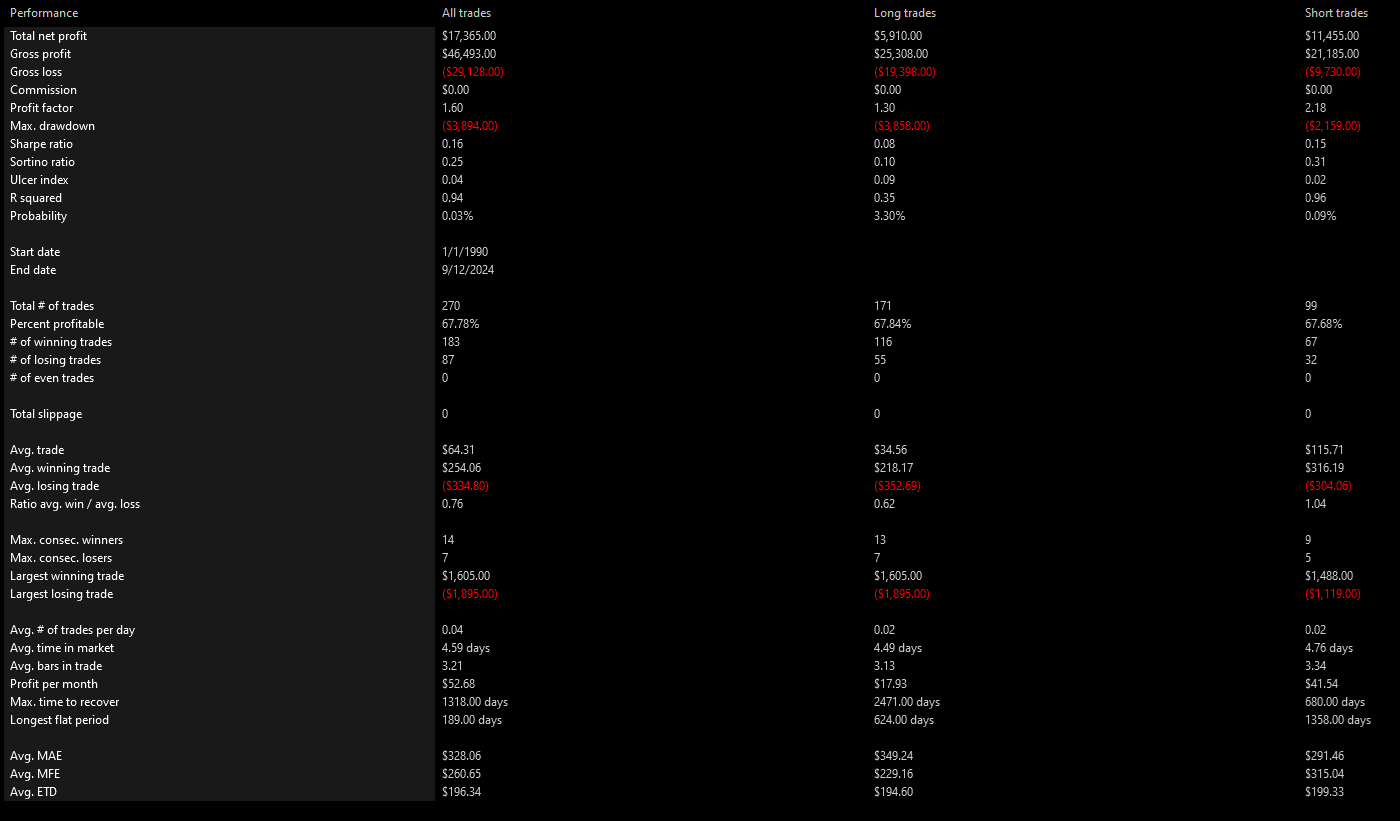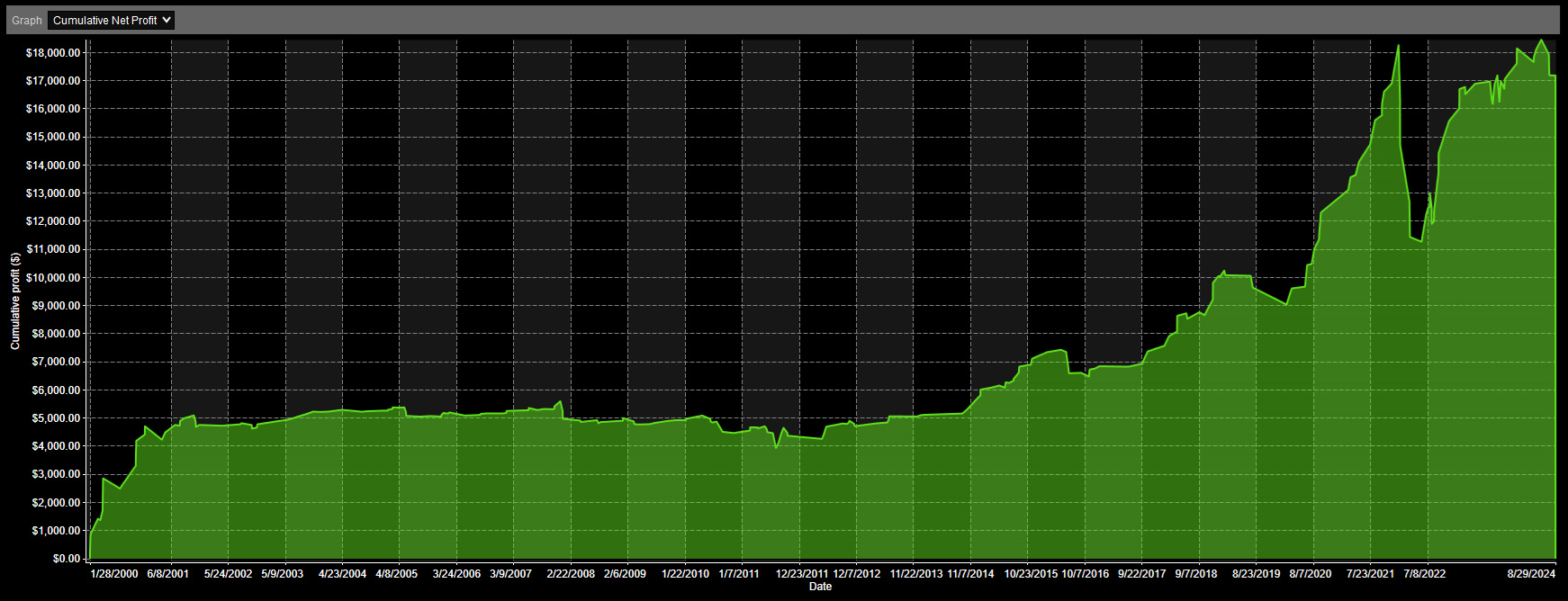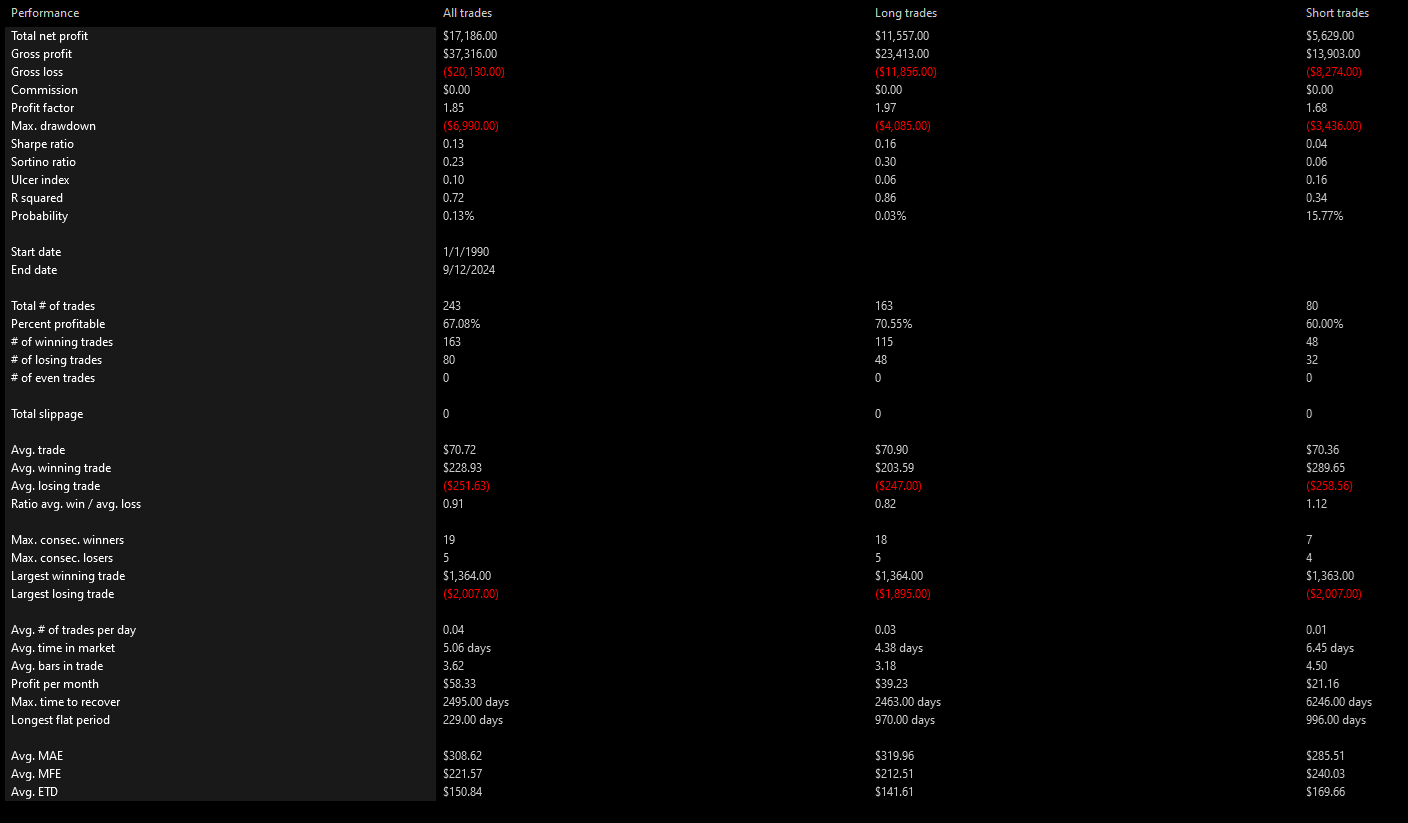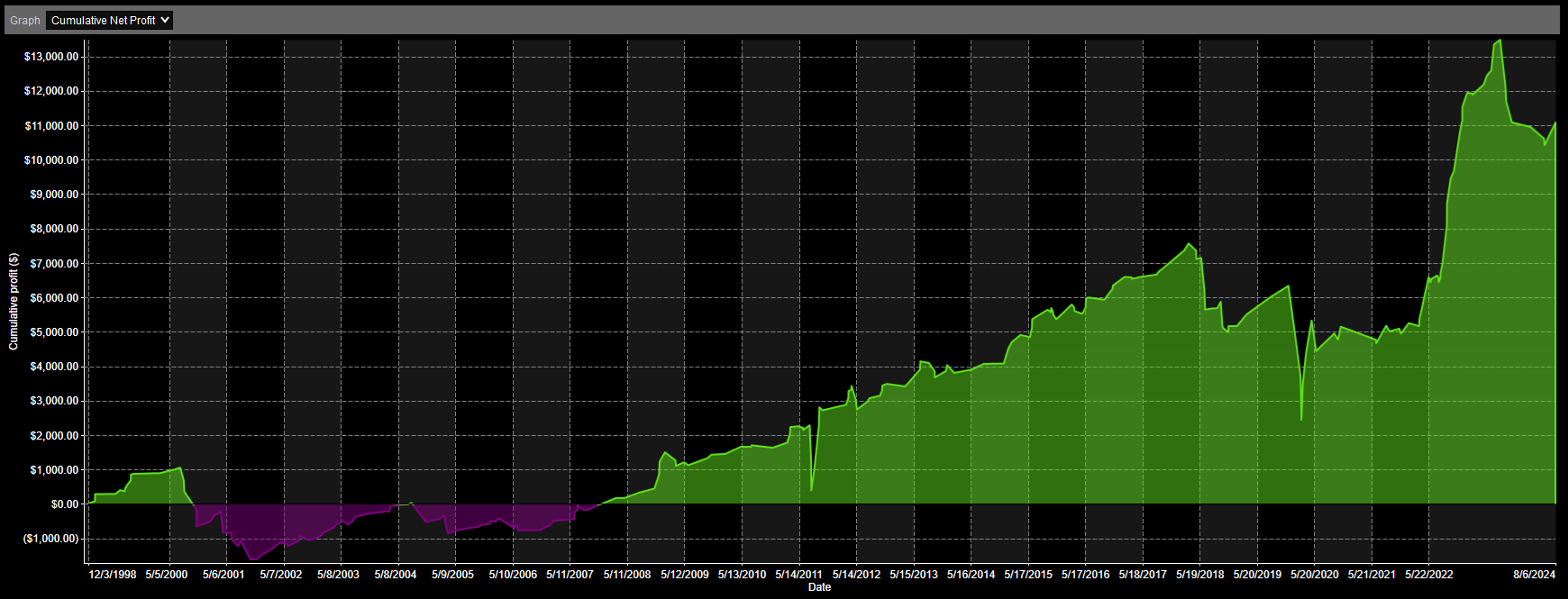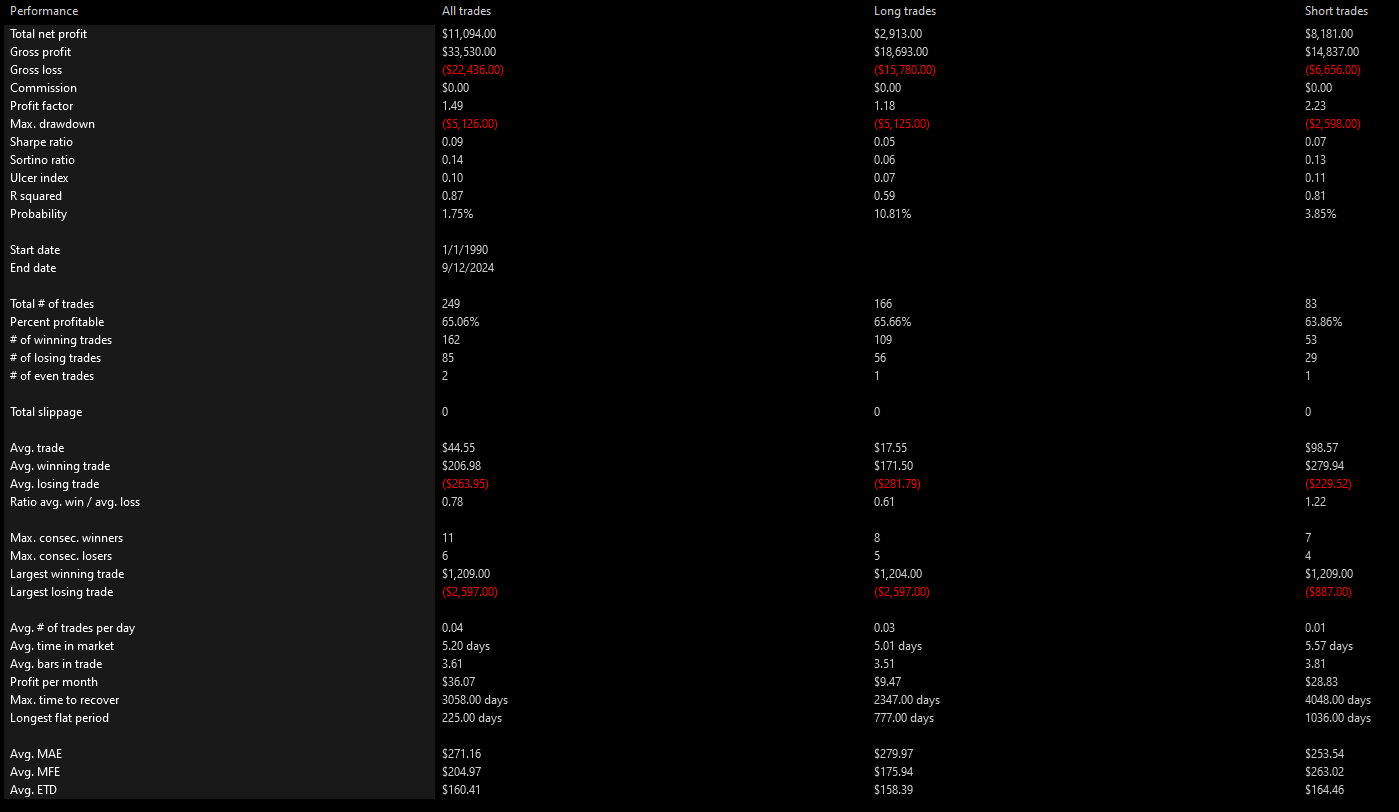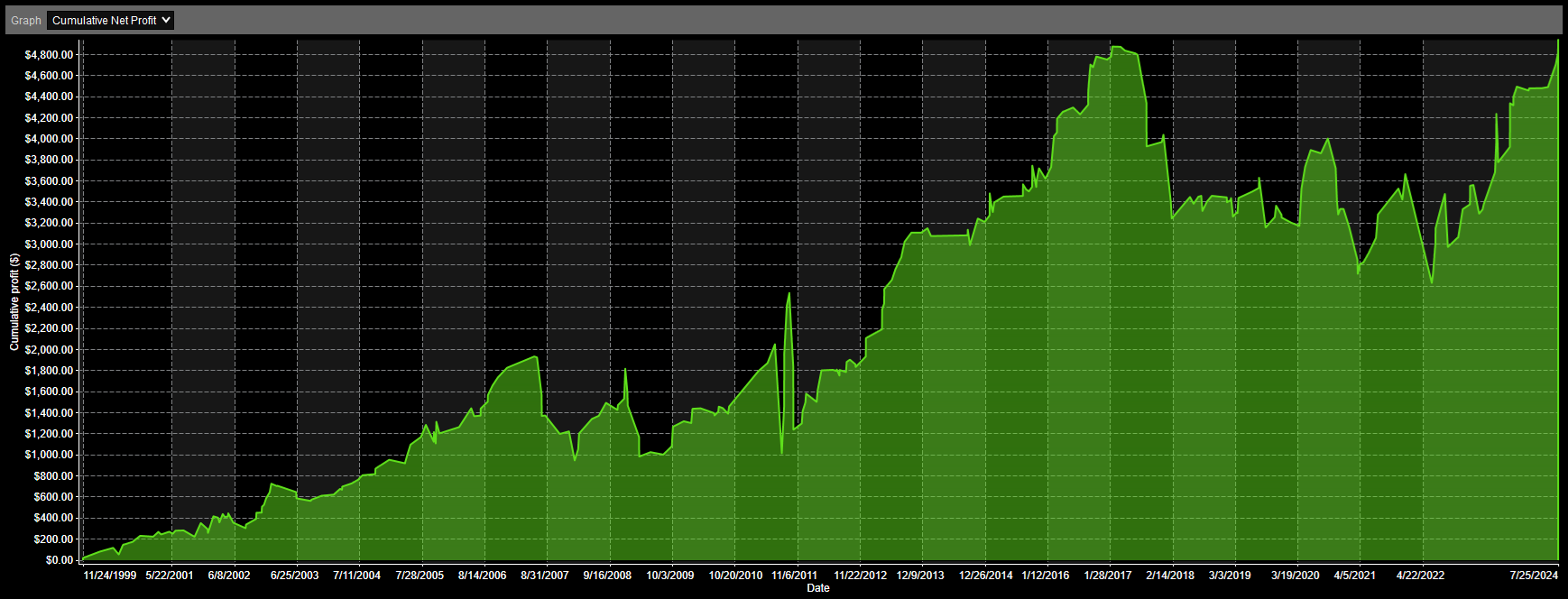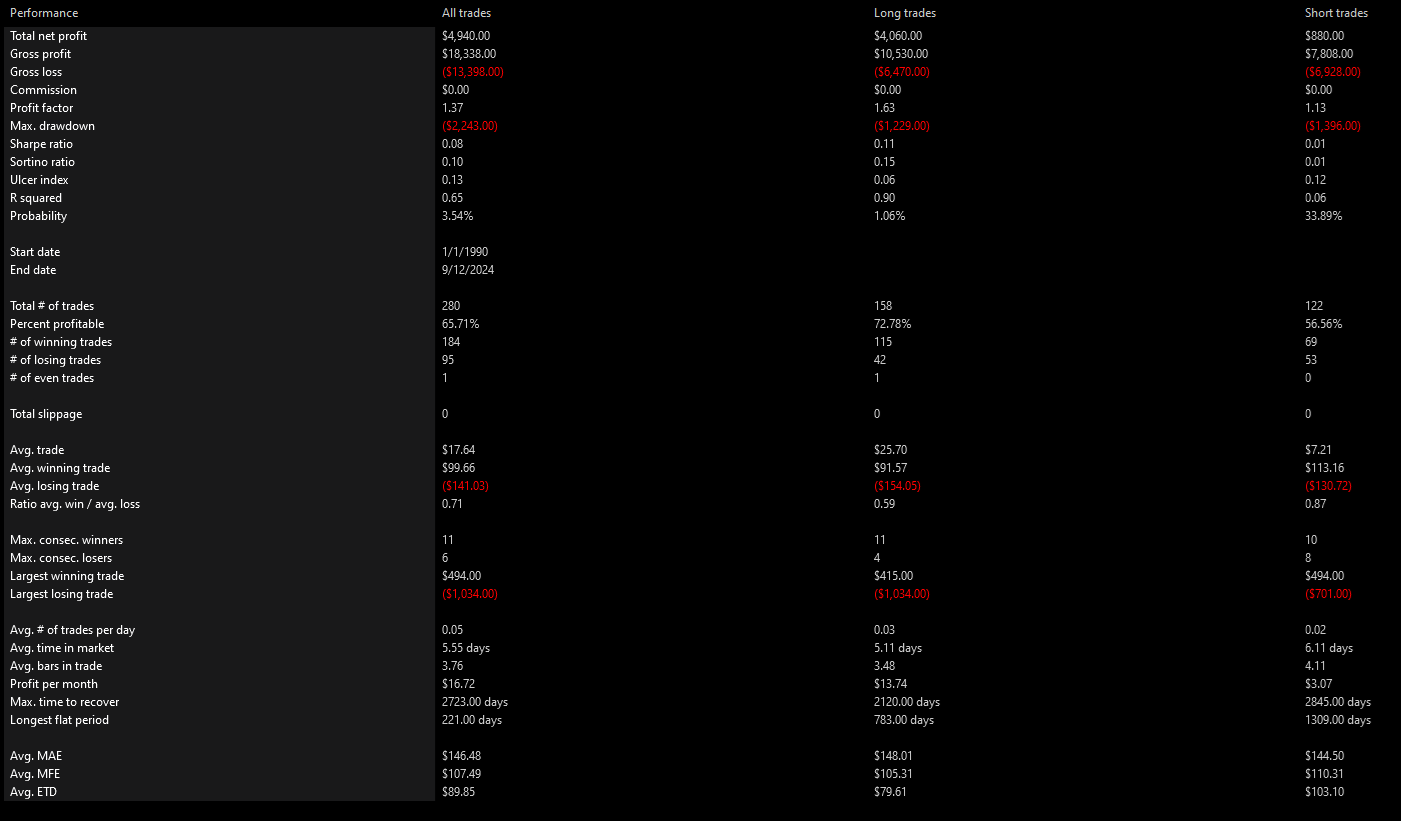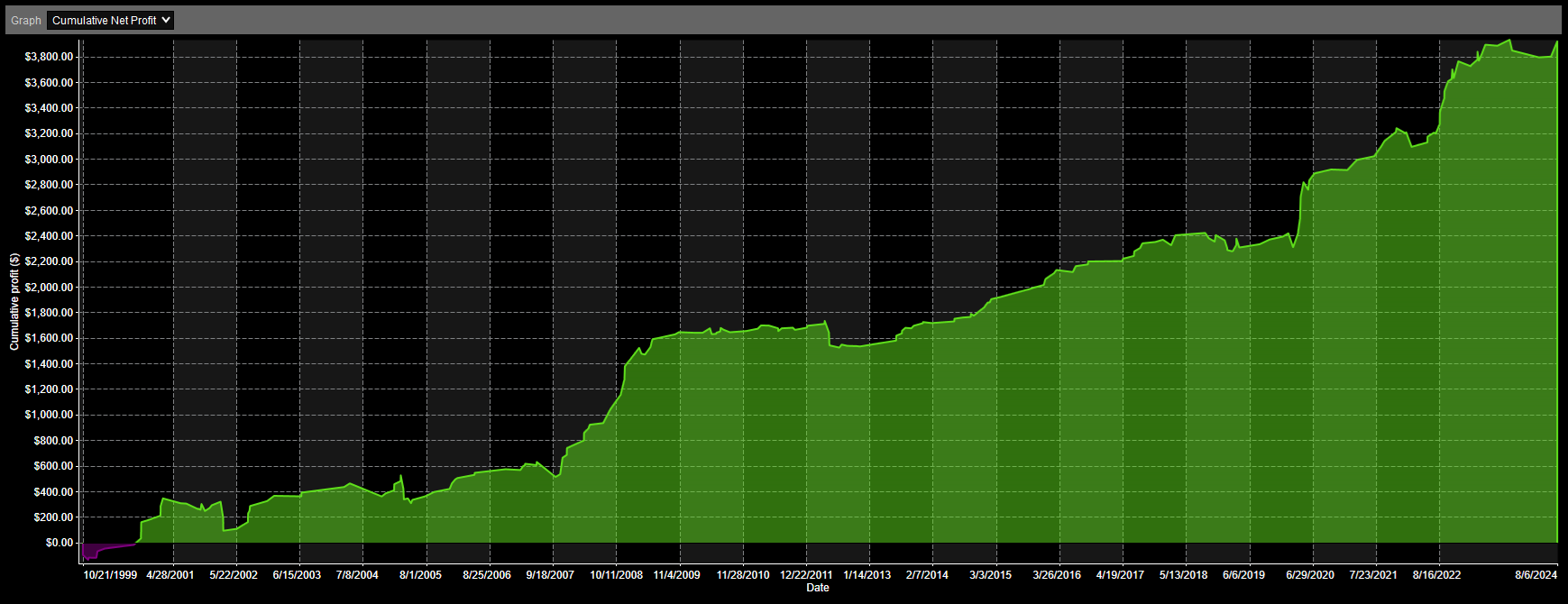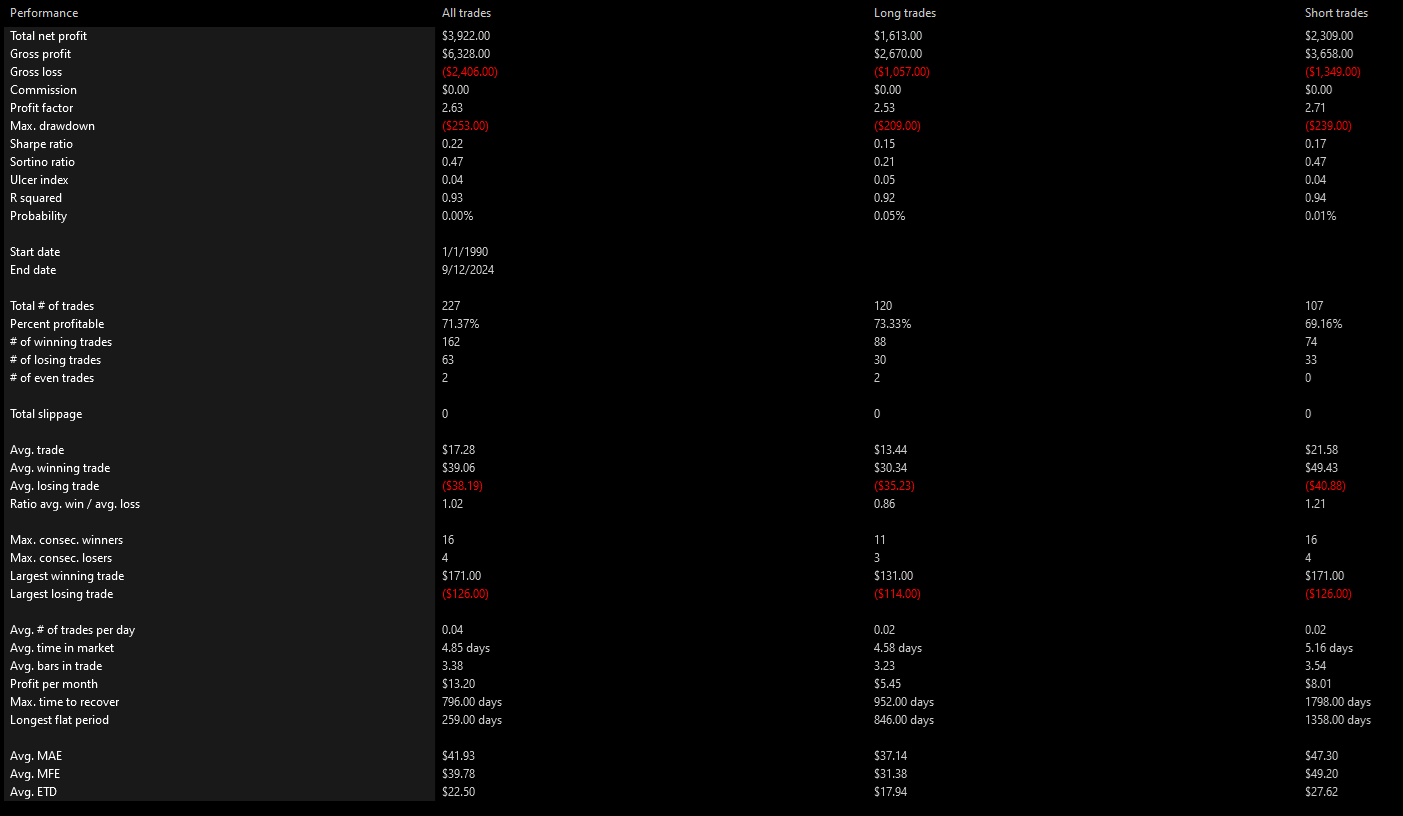|
…
|
||
|---|---|---|
| .. | ||
| backtest-results | ||
| README.md | ||
| ThreeDayHighLowBot.cs | ||
3-Day High / Low Bot
This strategy was taken from chapter 2 of High Probability ETF Trading (2009) by Larry Connors.
Rules
Long Trades
- The ETF (e.g., SPY) is above its 200-day moving average.
- The ETF closes below its 5-day moving average.
- The ETF must make a lower high and lower low for 3 consecutive days.
- Enter a long if the above conditions are met.
- Aggressive Version (optional): Enter a second long if price closes lower than the initial entry at any point during the trade.
- Exit when the ETF closes above its 5-day moving average.
Short Trades
The inverse of the long trade rules, but stated explicitly:
- The ETF (e.g., SPY) is below its 200-day moving average.
- The ETF closes above its 5-day moving average.
- The ETF must make a higher high and higher low for 3 consecutive days.
- Enter a short if the above conditions are met.
- Aggressive Version (optional): Enter a second short if price closes higher than the initial entry at any point during the trade.
- Exit when the ETF closes below its 5-day moving average.
NOTE: The strategy will work on any asset, not just ETFs.
Parameters
Consecutive Days: The number of days in a row in which higher highs / lows or lower highs / lows must be made. (Default: 3)
Long-Term Trend Period: The period to use in the long-term trend calculation as measured using a simple moving average. (Default: 200)
Short-Term Trend Period: The period to use in the short-term trend calculation as measured using a simple moving average. (Default: 5)
Enable Long Trades: Whether to allow going long in the strategy. (Default: true)
Enable Short Trades: Whether to allow going short in the strategy. (Default: true)
Enable Aggressive Entries: Whether to allow for entering a second trade when price initially moves against the first. (Default: true)
